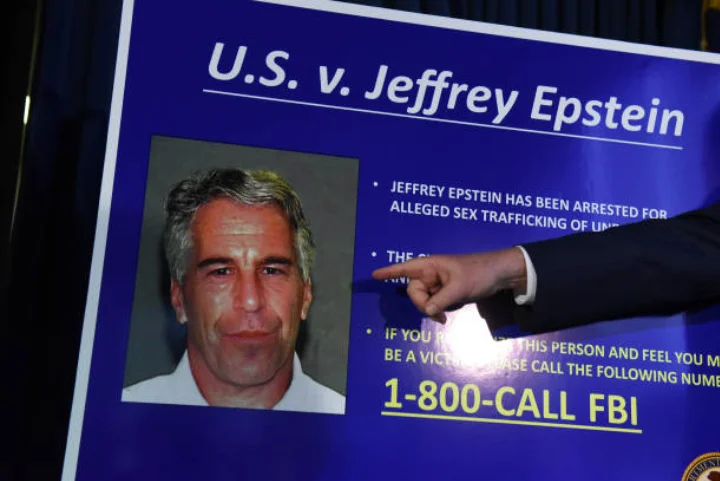
In a bombshell revelation that could quell years of conspiracy theories and speculation, the U.S. Department of Justice (DOJ) and the Federal Bureau of Investigation (FBI) have concluded their investigation into the late Jeffrey Epstein’s alleged blackmail operation. According to official findings, no conclusive evidence supports the existence of an “Epstein Client list” or a broader blackmail scheme.
Summary of Findings
After years of public pressure, leaks, and media frenzy, federal investigators have officially closed the inquiry into potential blackmail activities related to Jeffrey Epstein and his longtime associate Ghislaine Maxwell. The investigation, which included analysis of seized computers, hard drives, financial records, and thousands of documents, found:
- No credible evidence of a blackmail operation.
- No verifiable “Epstein client list” involving criminal activity.
- No plans or systems indicating organized leverage over Epstein’s wealthy associates.
A DOJ spokesperson stated, “We understand the public’s interest in this case, but our exhaustive investigation did not yield evidence of a covert operation to blackmail or compromise individuals.”
What Sparked the Investigation?
The Epstein scandal became a global media firestorm following his 2019 arrest on federal sex trafficking charges and his subsequent death in a New York jail. Since then, unconfirmed reports and conspiracy theories have swirled, alleging that Epstein maintained compromising material on high-profile individuals to wield influence.
This narrative was fueled further by:
- Epstein’s high-profile connections, including politicians, royalty, and CEOs.
- Court-released flight logs showing celebrities on Epstein’s private jet.
- Speculation around the circumstances of his death, ruled a suicide.
But the recent DOJ/FBI conclusion undermines these long-held suspicions.
No “Client List” Ever Existed, Officials Say
One of the most persistent rumors has been the existence of an Epstein “client list” — a roster of individuals who allegedly engaged in illegal conduct with minors. But the FBI stated definitively that no such list exists in any form that implicates people criminally.
While many names appeared in logs, contact books, or through social associations, investigators clarified that “presence in Epstein’s orbit” does not equate to criminal involvement.
What Was Reviewed During the Investigation?
The investigation combed through an enormous amount of data and physical evidence, including:
- Over 500 terabytes of digital material from Epstein’s homes in New York, Florida, and the Virgin Islands.
- Surveillance footage, much of it degraded or incomplete.
- Testimonies from accusers, staff, and associates.
- Financial transactions and offshore account histories.
- The so-called “Little Black Book,” a personal contact book that included hundreds of names but no criminal annotations.
Ghislaine Maxwell Trial Revealed No Blackmail Scheme
During Ghislaine Maxwell’s 2021 trial — which resulted in a 20-year sentence for aiding Epstein’s sex trafficking operation — prosecutors did not present evidence of any organized blackmail operation. The DOJ reaffirms that none emerged since.
While prosecutors admitted Maxwell and Epstein operated with “incredible secrecy,” they emphasized that criminal charges were only brought based on verified abuse of underage victims — not speculative activities.
Public Response: Skepticism Still Runs High
Despite the DOJ and FBI’s conclusions, public skepticism remains widespread. On social media, hashtags like #EpsteinCoverUp and #WhereIsTheList trended within hours of the announcement. Critics claim:
- The investigation lacks transparency.
- Key witnesses were never called or questioned.
- The government is protecting elites.
Others argue the public should respect the rule of law and the integrity of the legal process.
Conspiracy Theories Persist
In recent years, Epstein has become a figure central to online conspiracy movements. The belief that he operated a massive blackmail scheme with government or intelligence backing has persisted despite the absence of solid evidence.
Analysts suggest that the secrecy around his finances, unusual plea deal in 2008, and high-profile connections have all fueled speculation — regardless of actual evidence.
What Happens Next?
While Epstein-related civil lawsuits are ongoing — particularly those targeting his estate — the federal criminal investigation is effectively closed regarding the blackmail and client list aspects.
DOJ officials said they will release a public summary report in the coming months to address public concerns and provide additional clarity.
Key Takeaways
- No Epstein client list exists that shows criminal activity, says FBI.
- No evidence supports blackmail operation.
- Public still suspicious despite official closure.
- Ghislaine Maxwell remains imprisoned for aiding sex trafficking.
Expert Commentary
Legal expert and former federal prosecutor Lisa Bloom commented:
“The idea of a blackmail ring is captivating, but from a legal standpoint, you need evidence. The DOJ’s statement is credible unless someone can present solid proof otherwise.”
Investigative journalist Julie K. Brown, who exposed much of Epstein’s lenient plea deal in Florida, noted:
“There’s still much we don’t know about Epstein’s operations. But if there was real blackmail material, it seems the government hasn’t found it — or won’t release it.”
Conclusion
The Epstein saga has gripped the public imagination for years, mixing high society, secrecy, sex trafficking, and mystery. Now, with the FBI and DOJ drawing the curtain on theories about blackmail and client lists, the official narrative pivots back to a more traditional — though still deeply disturbing — criminal profile.
Whether the public accepts this closure or continues to believe in hidden truths, one thing is clear: the Epstein case will linger in America’s cultural and political psyche for decades to come.


